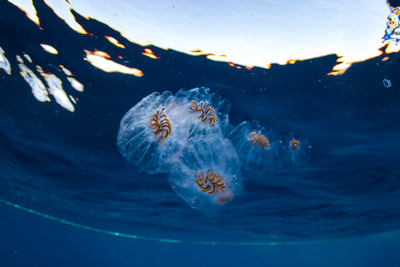|
Months ago, a friend was stricken by the finitude of life and fear of regrets. We talked about this urgent – galvanizing rather than paralyzing – fear of life ending. I couldn’t empathize because I have not feared death in a long time, if ever. I have feared disability, which could come with age but also unbidden from accident or disease; and, in particular, I have feared, immodestly, the dulling of my fine mind, but fear of death? No. We quickly and lightly attributed the difference to my Hindu, rather than Judeo-Christian, upbringing. I have often said that I don’t have to do everything in this life. This does not mean that I believe that I will live another life, just that more lives than this life of mine will be led. So rather than the end or regrets at the end being important, it is – most tritely – living right now, “this is what I want to do, this is who I am,” that has been important to me. This is a frame that has served me well, as I have genuinely enjoyed a little patch in a concrete path that looks like a woman dragging a sack behind her, and, less whimsically, was consumed, with awe, by a storm of jellyfish, thousands if not millions streaming past me, a few stinging my face. These are sensory joys. In each case, it was not just an image, or a sting, but, with the concrete it was the feel of the light, the humming of a high-voltage wire above, and in the water, again, it was the light, or lack thereof, the awareness of gristle – Silky Shark bait, in the water amidst the swarming points of light – that I could not smell. But the gentle joys of the moment are not only sensory. Words can snare me, not just their rhythm, though, admittedly, it’s their rhythm that typically lures me first. Ideas can make my eyes widen, my fingertips feel alive.
In this way, reading The Paris Review’s interview with Luisa Valenzuela, whom I met in Tepoztlan in January, and chose to adulate though I didn’t really know her work, or her, led to a gentle moment with “the badlands of language,” from whence, according to Luisa, women come. Reading that phrase, I wanted to own it, not possessively, but gently, like the jellyfish stings and flawed concrete. I, a writer, come from the badlands of language. What does that even mean, as one of my daughters would ask. It has something to do with anger, I think, something to do with the paradoxical freedom of someone who struggles, who fundamentally is not and can never be free. We cannot just be the flower that offers its beauty and perfume freely, indeed the flower does not do that either, but that is a tangent I will leave aside in this piece. Learning to gently enjoy the beauty of the moment is truly a source of peace and wonder, that – as I let the beauty of this moment, of writing this piece with morning light falling on pictures of Jimi Hendrix, Janis Joplin, Ray Charles; falling also on a postcard of one of Do Ho Suh “houses;” and, above all of these, falling on my collage of Thomas Hirschhorn’s ruins in Zurich – relaxes my body. I rub my cheeks. The beauty rubs on to me. This is a benediction. But my life, coming from the badlands of language, in many ways quite literally, is not only benediction. Realizing this is not gentle joy. Indeed, it returns me to wildness, to wilderness. The Silkies never came, the gristle got caught in my hair. As I write this, the morning light is lovely, but cortisol, fear, and desire are in my fingers as well. Cortisol, fear, and desire are not gentle; they come from struggle. Struggle is wild. The flowers are not free. I have already written from that wildness (read my first novel!). How do I live with it? How do I hold it as preciously as the gentle joys of each moment? It calls for risk in living. Does risk in living mean risking loving (as my first novel explores)? When the end comes, there is no happy ending. There is just the limited end. Everything else goes on. Struggles and projects remain unfinished. I, with a happy Pollyanna-ish mind, want to end this piece with a call for, a touching of, a blowing out of the “joy of loving.” That phrase wrote itself into the title and I am loth to throw it out. But the joy of loving is what it is. You can only have it if you have it. And otherwise, or rather in any case, you struggle. Note on jellyfish photo: Our guide and underwater photographer did not photograph the swarm. These jellyfish, also lovely, also stinging, also amid the flesh and bone of the shark bait, came before the swarm. Epilogue: I’m going to dive again.
1 Comment
|
AuthorMeenakshi Chakraverti Archives
December 2023
Categories
All
|


 RSS Feed
RSS Feed